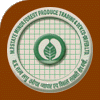|
AUGMENTING
RURAL INCOME
Land and water are the two most important natural endowments but they
are finite. However, with judicious mix of interventions
like development of irrigation facilities, application of
improved and modern agricultural practices and creation of
other income generation activities based on non-destructive
use of locally available natural resources, the possibilities
of creating dependable wage labor can be enhanced. The initial
entry point activity would be to create awareness among the
local people about their latent strength, availability of
natural resources and potential of using them on sustainable
basis by technological upgradation. Broadly, this may be achieved
by developing the hardware of the system comprising of physical
activities eg. water harvesting structures, drinking water
facilities, common facility centers, village level processing
units, storage units etc. On the other hand, interventions
like raising awareness, bridging credibility gap, confidence
building, soliciting meaningful participation of the local
communities and empowering them, creating income generation
opportunities through skill development etc would constitute
the software of the system.
50% of the workforce working in forest plantations are women
and 70-80% of mandays are used in collection of NWFPs, fuel,
fodder by tribal and rural women.
-ICFRE, Dehradun (2000)
Keeping in view that for the poor communities, economics precedes
ecology and conservation and in tune with their priority there
has to be a sharp focus on productivity enhancement so that
they can reap better economic returns. For those who possess
land, a programme is initiated to upgrade the productivity
of the agriculture system by land shaping, constructing stop-dams,
tube wells and making available to them other inputs for better
crop husbandary practices, so that the land under rainfed
condition is transformed into double cropped or in certain
cases even triple cropped land. Enhancing the productivity
of the land provides good harvest as well as gainfull employment
round the year. All these on-farm activities can be adopted
as a package for improving the socio-economic conditions of
the people who otherwise practice subsistence agriculture.
For landless persons off-farm activities leading to income
generation can be devised by using forest biomass and other
resources. In the first category, activities like NWFP collection,
rope making, honey collection, nursery raising etc can be
considered, whereas in the latter category schemes like poultry,
piggery, mushroom cultivation, shop-keeping, grocery etc.can
be envisaged.
NWFP with their attendant instrumentalities play a meaningful
role in bringing sustainability to the system because the
employment generation from this enterprise is around two million
persons year, which is approximately half of the forestry
sector, NWFP related activities take care of both the unemployed
as well as underemployed and NWFP based small scale enterprises
can further strengthen the linkage of the socio-economic base
on account of :
- Low
capital and low energy requirements.
-
Proper utilisation of local renewable resource and technological
know-how.
- Checking
migration from rural to urban areas ; and
- Being
a family activity it provides satisfaction of creation.
These are some of the illustrative and by no means exhaustive
interventions, which can provide a conducive environment for
socially acceptable and dependable wage labor.
|

